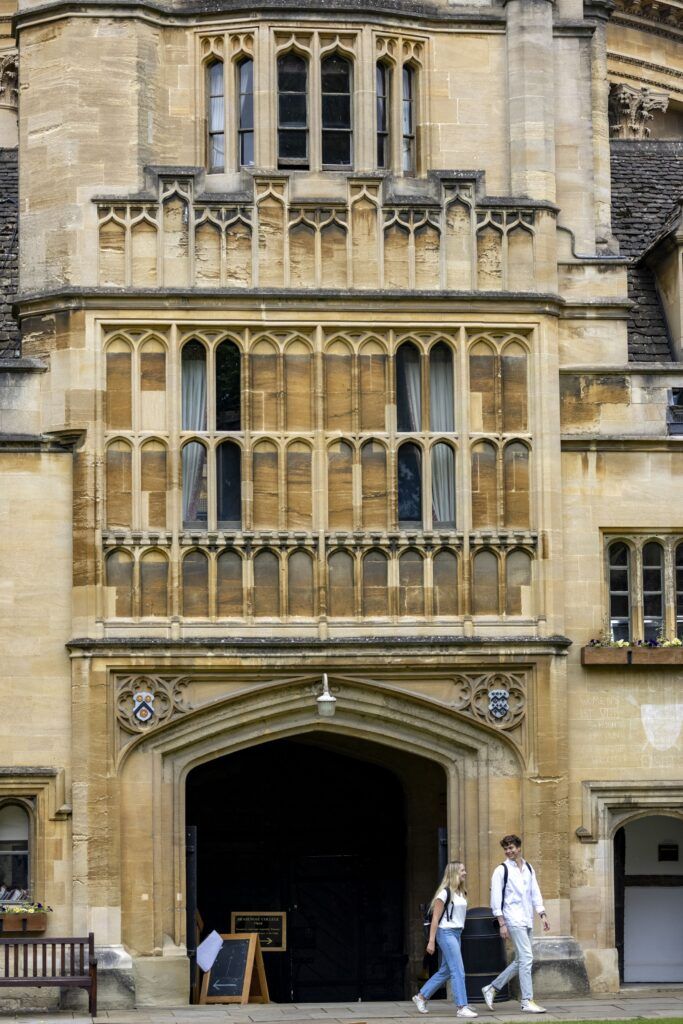
Even for the jetlagged, the first look at city centre in Oxford, England, is an eye-opening and mouth-gaping experience.
Architecture spanning Saxon, Gothic, Neoclassical, and Victorian periods rises overhead. You’ll find chapels, towers, libraries, and halls built for the oldest of the University of Oxford’s 39 colleges. Each appears to compete for grandeur, a contest that inspired the Victorian poet Matthew Arnold to call Oxford the city of “dreaming spires.”
With a mixture of awe and exhaustion, a group of 17 University of Georgia students tour these streets on a warm June afternoon. It’s their first day in England after an 8-hour overnight flight from Atlanta. But their lively tour guide, Oxford townie Debbie Gerrans, is determined to hold their attention. She manages admirably, taking them on an hour’s jaunt to get familiar with their home for the coming weeks. The sites and stories certainly help. She shows them where J.R.R. Tolkien boarded as a student, C.S. Lewis went for a pint, and filmmakers shot parts of the Harry Potter series.
As the tour draws to a close, Gerrans offers a piece of advice. Noting all the skyward craftsmanship and artwork on building exteriors and vaulted dome ceilings that constantly surprise and delight, she tells them, “Don’t forget to look up.”
It’s good advice for any visitor to Oxford but perhaps especially for UGA students, who will spend much of their time with their heads down. With courses taught by a mixture of UGA and Oxford faculty, the academic workload here pushes and challenges even the most capable students. Those who embrace the challenge return stateside sharper and more confident.
Tutorials
With an empty armored helmet looking on, Katie Beard, a history and international studies major, finds a cushioned armchair in a charmingly cluttered office where books and medieval artifacts abound. Beside her, a sheathed knightly sword leans near an electric kettle. A window overlooks the vast Tom Quad at Christ Church College, founded by Henry VIII just before his death nearly 500 years ago. Beard, however, is focused on another time and another place.
A silver-haired medieval historian, Rowena E. Archer, takes a seat next to Beard for their tutorial to begin. It’s time for Beard to show what she knows.
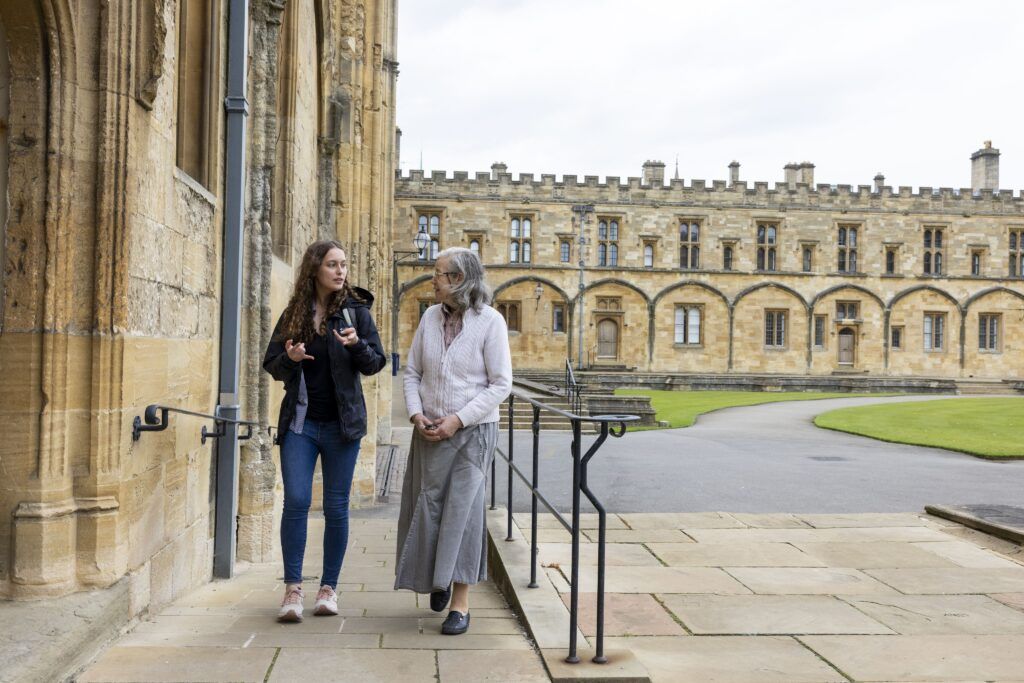
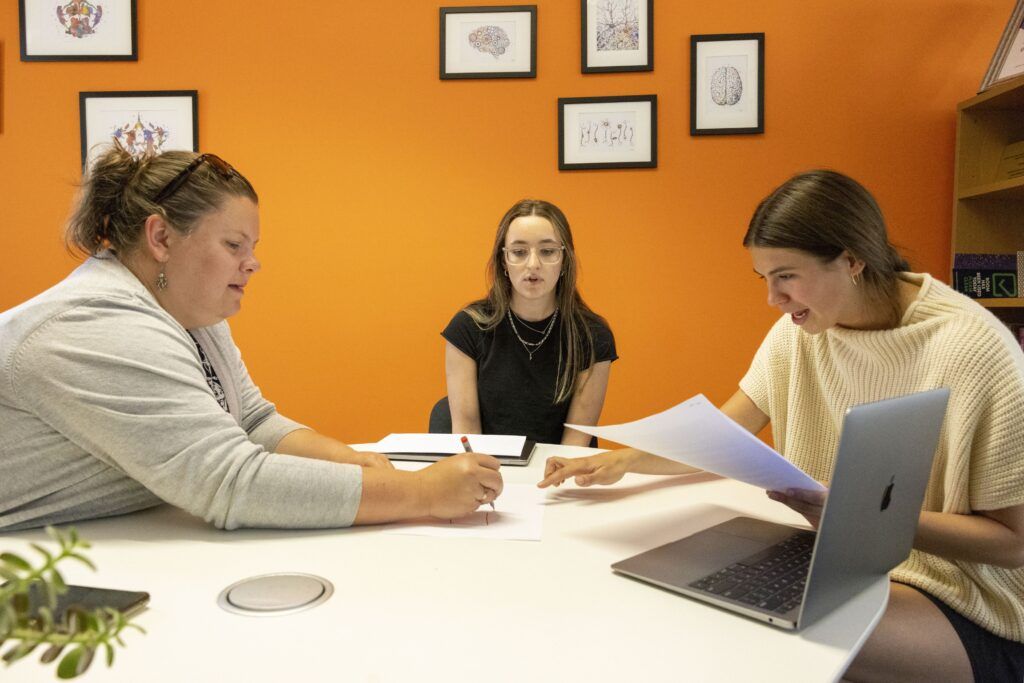
Though UGA at Oxford offers several shorter summer programs, its signature offerings are 12-week semester-long programs in which students take one-on-one tutorial courses with Oxford faculty.
Tutorials are a style of instruction unique to Oxford and its sister university, Cambridge. They consist of weekly meetings with an esteemed faculty member and usually only one or two students. Students, not tutors, do all of the preparation. They show up ready to read aloud a 2,000-word essay or deliver an in-depth presentation based on assigned readings.
In this tutorial, Beard reads her essay about the medieval poet Christine de Pizan, known as the only professional woman writer of her time. And for the rest of the class, her tutor probes Beard’s ideas and arguments.
At this point late in the semester, Beard is ready to defend her positions and articulate what she’s learned. And when she doesn’t know an answer to a question, Beard doesn’t try to fake a response or offer an excuse; she asks for the answer or where she can find it for herself.
Tutorials are universally intimidating for students, at least until they get the hang of it. Students prepare every class to be put on the spot and must be ready for any mistakes to be pointed out. No excuses. No weeks off, or the tutors will know.
“They tend to be kind of brutally honest as a style of teaching to make sure you’re able to defend anything you say, and you don’t make any baseless claims,” says Nicholas Kreitz, a student in the 2022 spring semester program.
That’s enough motivation for students to work arduously and efficiently to make the most of the opportunity.
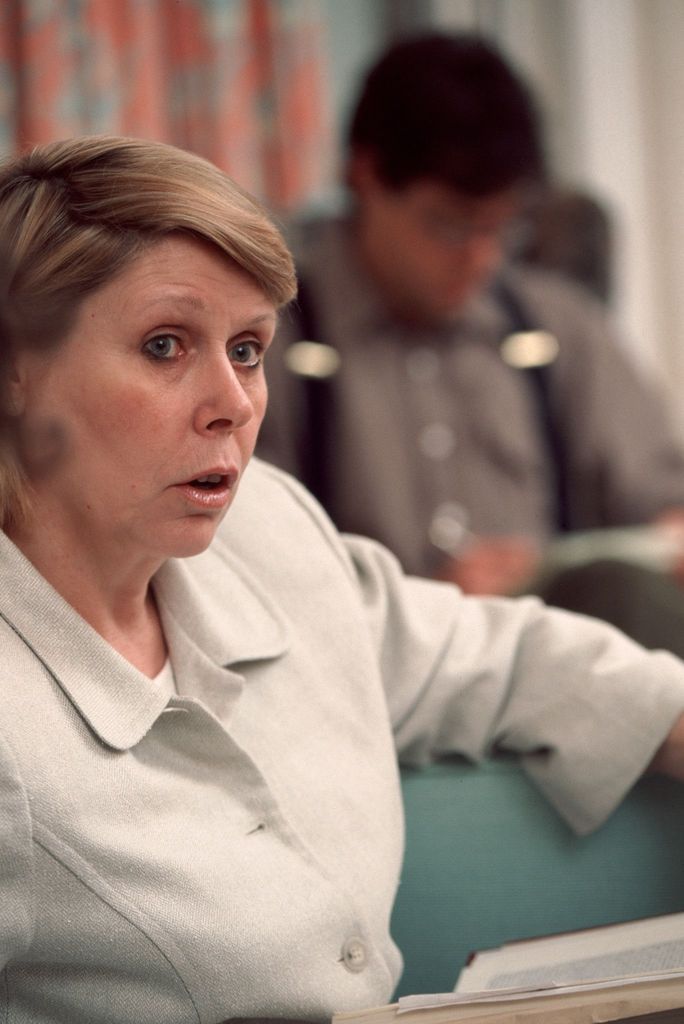
The Story of UGA at Oxford
Over the years, Oxford has hosted thousands of Georgia students. It all started with one UGA English professor in the 1980s.
Judy Shaw was a mid-career academic when she began to rethink how students could connect with literature. She reached out to the University of Oxford, which agreed to let Shaw bring 13 students over in the summer of 1989.
That summer program turned into a semester-long program as students began attending courses at the same time as Oxford students. Over the years, Shaw built an invaluable partnership with David Bradshaw, a fellow at Oxford’s Worcester College. Bradshaw recruited other Oxford faculty to participate in the program, helping to expand the range of disciplines available for study.
Eventually, the program opened to students of all UGA’s schools and colleges. University of Georgia students garnered a reputation among Oxford faculty for their enthusiasm and hard work.
Shaw went on to become UGA’s associate provost for international education before retiring in 2009. Her legacy remains in Oxford.
To this day, the University of Georgia provides a rare opportunity for students to engage with this prestigious university. While many other institutions bring their students to Oxford, UGA is one of only three American institutions—and the only public—to provide Oxford faculty-led tutorials. Stanford University and Williams College are the other two.
These days, Jamie McClung MA ’01, PhD ’09 runs the program. With dark eyebrows and a clean-shaven head, McClung has become a recognizable face around Oxford over the years. Whether he’s walking into a dining hall or down a street in the city centre, it’s likely that someone will recognize the mellow, gregarious Yank and strike up a conversation.
McClung first visited Oxford as an English literature grad student at UGA and fell in love. After completing his doctorate, McClung embarked on the traditional academic career path to become a professor when the program started looking for an associate director.
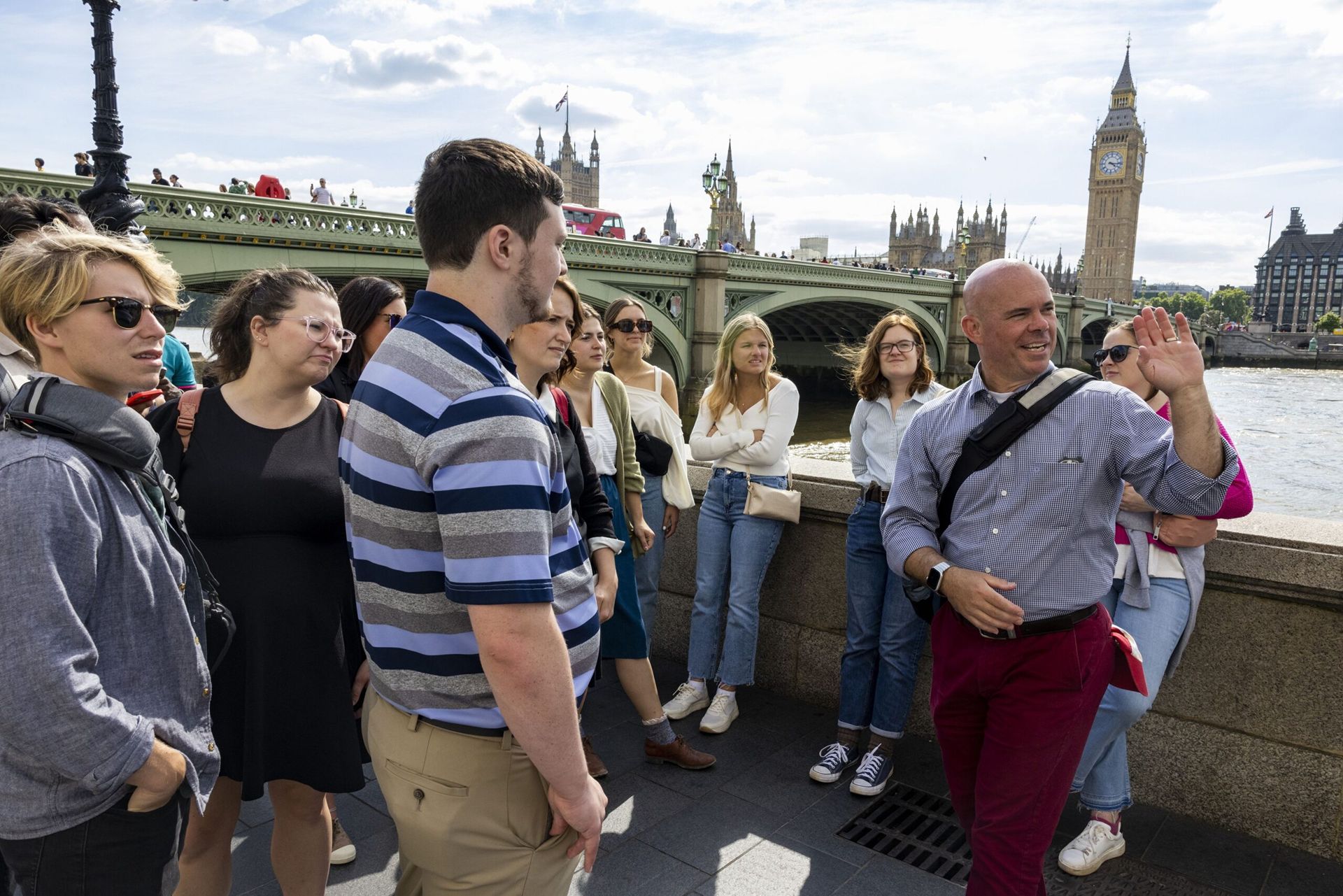
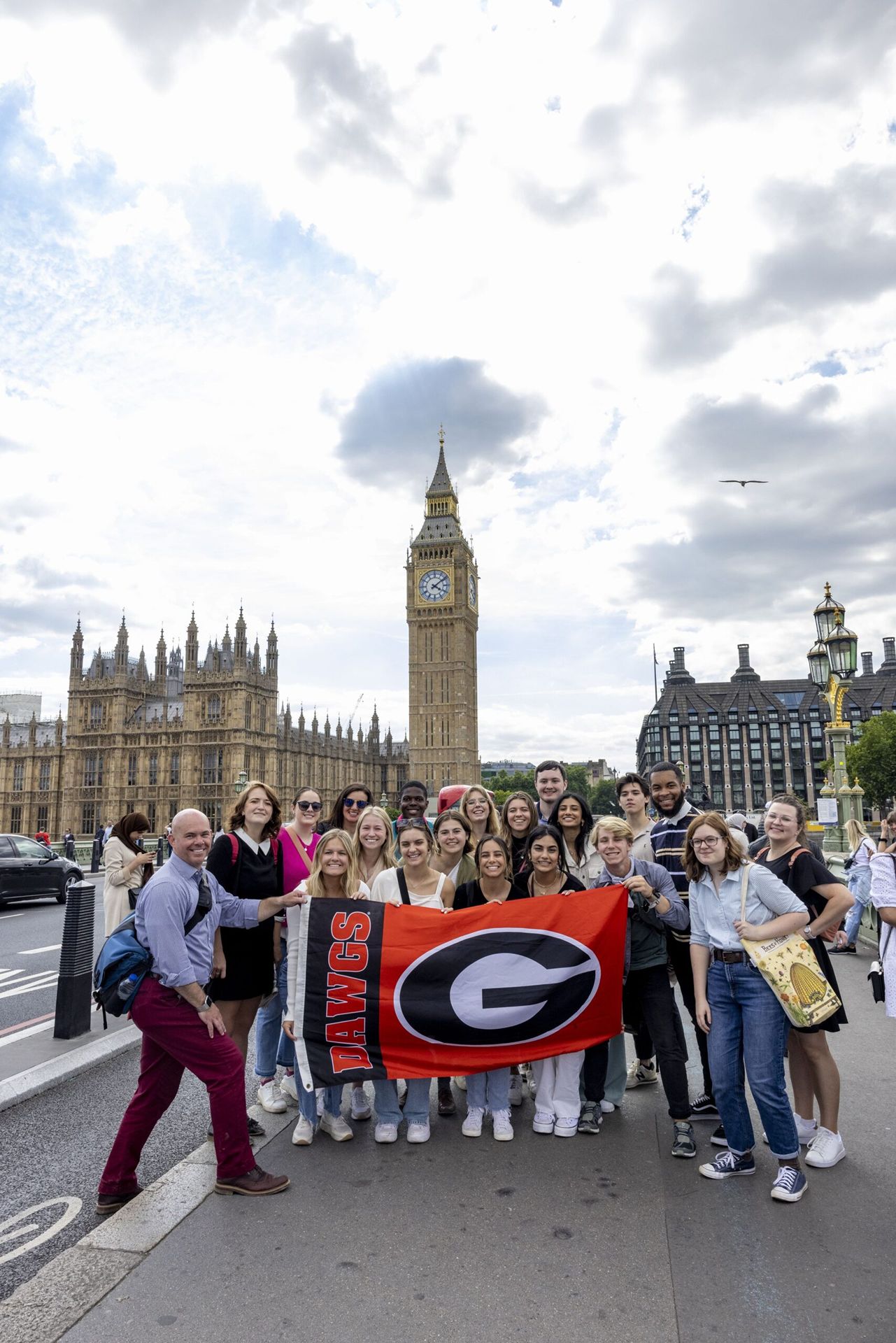
“I thought, ‘Heck, the job market is tough in English literature, and maybe I can have a bigger effect on an institution beyond teaching classes by helping develop programs,’” McClung says.
McClung does that and more. He’s a student recruiter, travel agent, relationship builder, tour guide, and fixer when issues inevitably arise.
When the pandemic hit in 2020, McClung ensured students made it home safely.
And then, things went silent.
The UGA at Oxford Centre sat nearly empty for almost a year and a half. Each semester, McClung and the program staff in Athens would prepare as if students would be able to come, but a spike in cases or the introduction of a new variant kept the program closed.
Finally in fall 2021, the program welcomed students again.
“It was really nice to have them back,” says McClung, who was so busy making contingency plans that he never stopped to consider how quiet the UGA Centre in Oxford had become. “It really hit all of us when we finally had a group of students back over again.”
Live, Work, Play
As Covid protocols slowly receded, students began to gain greater access to all Oxford offers, including its stunning study spaces.
When it’s time to research, read, and write, students can take their pick of favored spots to work.
Historic or modern, ornate or sterile, dead silent or chatty with the occasional screech of a café milk steamer, the University of Oxford offers more than 100 libraries to find materials and get work done. There’s even a website that points scholars to their ideal atmosphere and amenities.
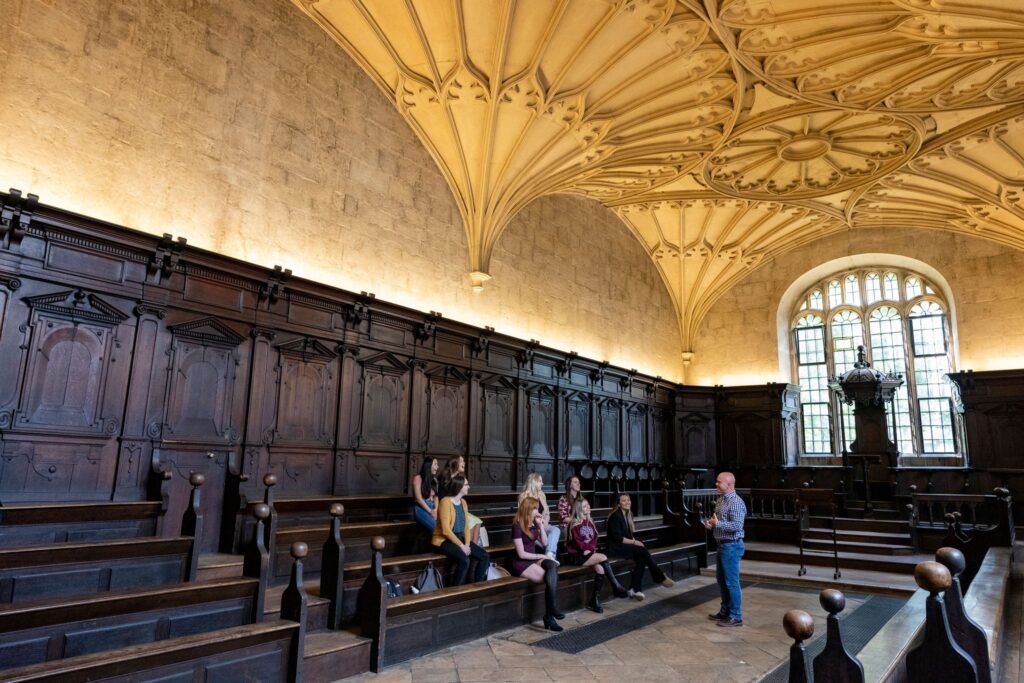
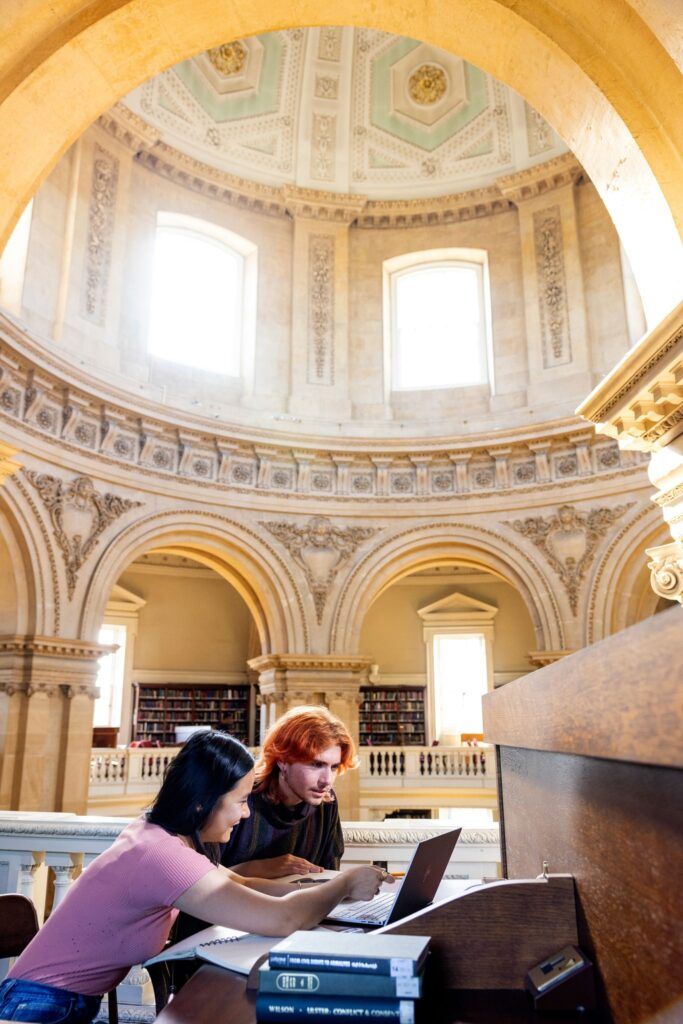
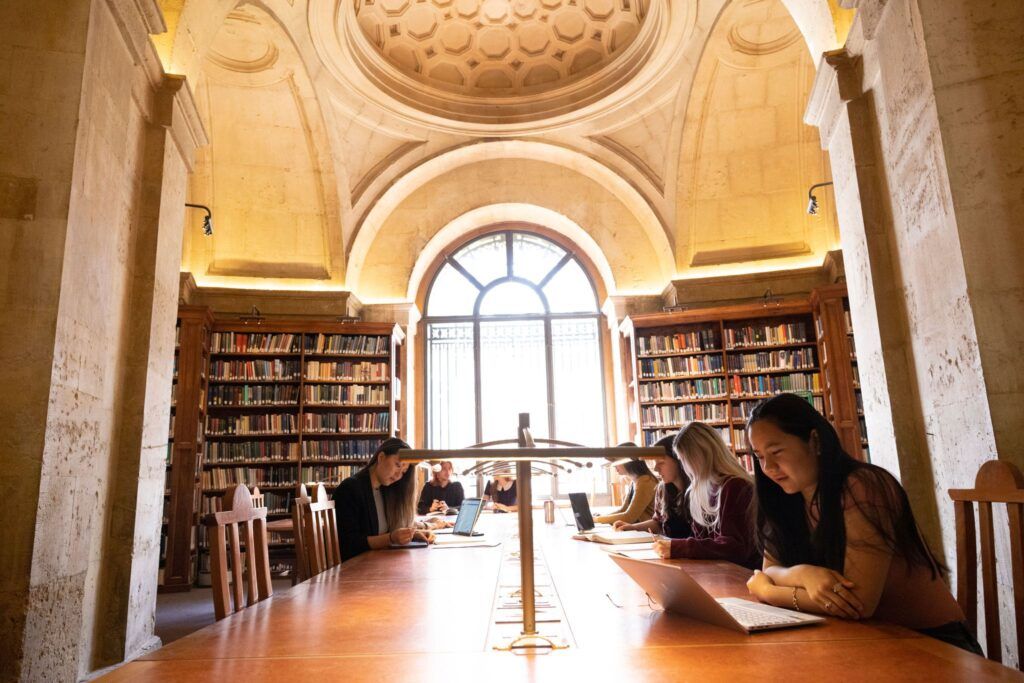
For spectacular ambiance, there’s the Bodleian Old Library, one of Europe’s oldest, or the Radcliffe Camera, a stunning circular-domed building with plenty of windows to let in natural light. Both libraries enforce a strict policy of silence.
Katie Beard usually skips the beauty and heads down to the Gladstone Link, a tunnel connecting the Bodleian and Radcliff Camera and houses history texts. Nicknamed “the Glink,” it’s basically a bunker for history buffs.
For a more relaxed setting, students have the UGA at Oxford Centre, where most also live during their stay. The 19th-century Victorian mansion has its own library, seminar room, computer facilities, living areas, and a lush garden, perfect for reading or writing on temperate days. The mansion houses up to 40 students and sits about a mile from city centre. The house makes UGA one of only a handful of American universities with a permanent presence in Oxford, and the only public that runs year-round programming through it.

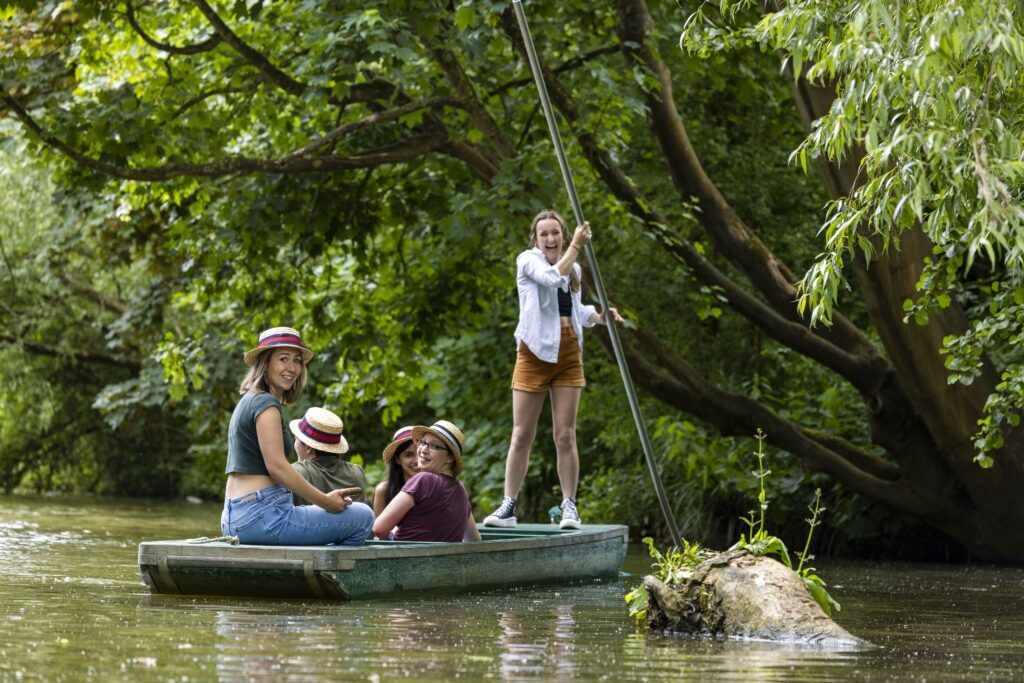
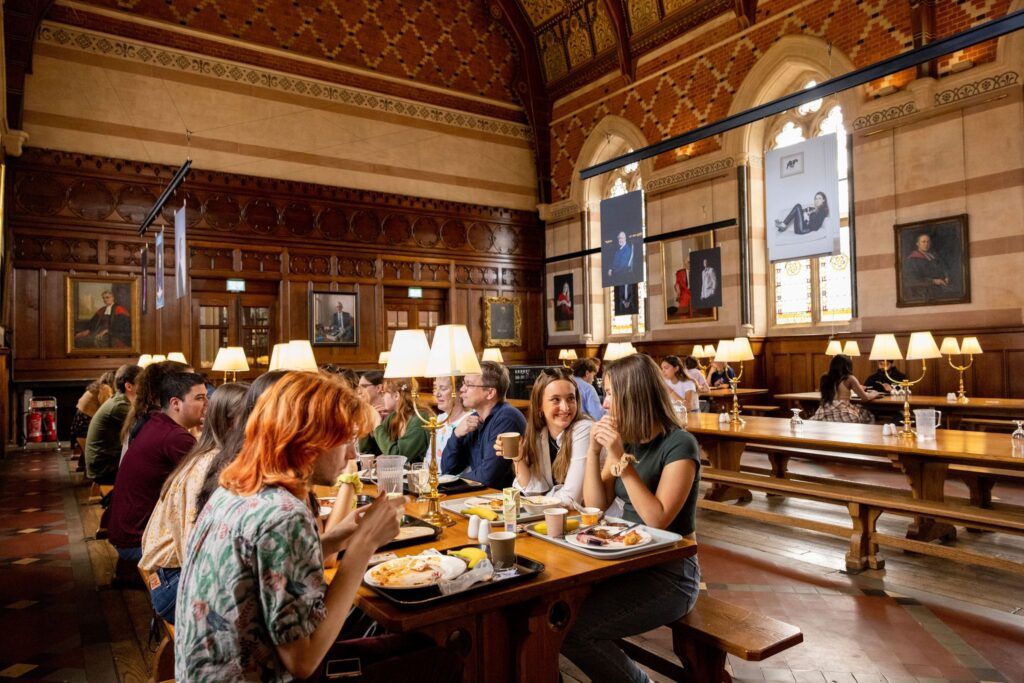
When students are hungry, the house has two kitchens, but students also have access to the dining halls at Keble College or Trinity College. The food is good, though it doesn’t hold a candle to UGA’s dining halls. However, Keble Hall’s atmosphere is impressive in its own right, with long lamp-lit tables, raised ceilings, stained glass windows, and paintings of distinguished alumni.
Dining out is always an option too. Contrary to the stereotype, England has plenty to offer foodies beyond fish and chips and savory pies (although those are pretty good here too). Whether it’s traditional pub food at the White Horse Tavern, red curry at Chiang Mai Kitchen Thai restaurant, or some other variety of international cuisine, it’s easy to find a good meal around town.
And even with a hefty workload, students still make time to take in their surroundings and explore. The program offers a variety of excursions, from seeing a play in London’s West End to exploring Roman ruins and Jane Austen attractions in Bath or taking in incredible views at the Jurassic Coast. Some students even use a weekend here and there to catch a train to Paris or a flight to Barcelona, Prague, or Rome.
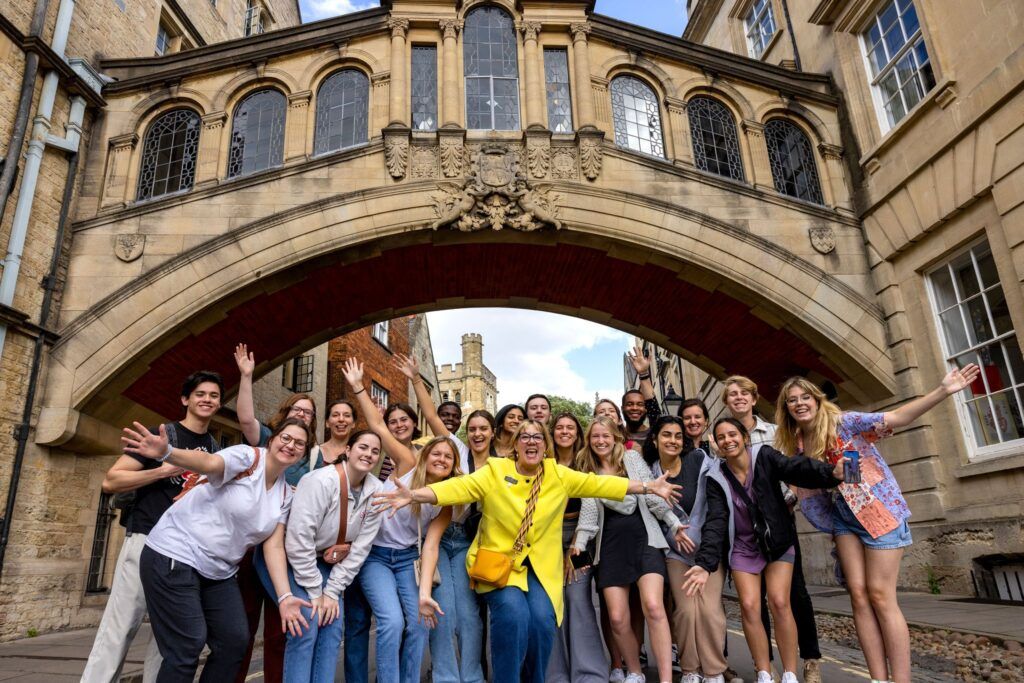
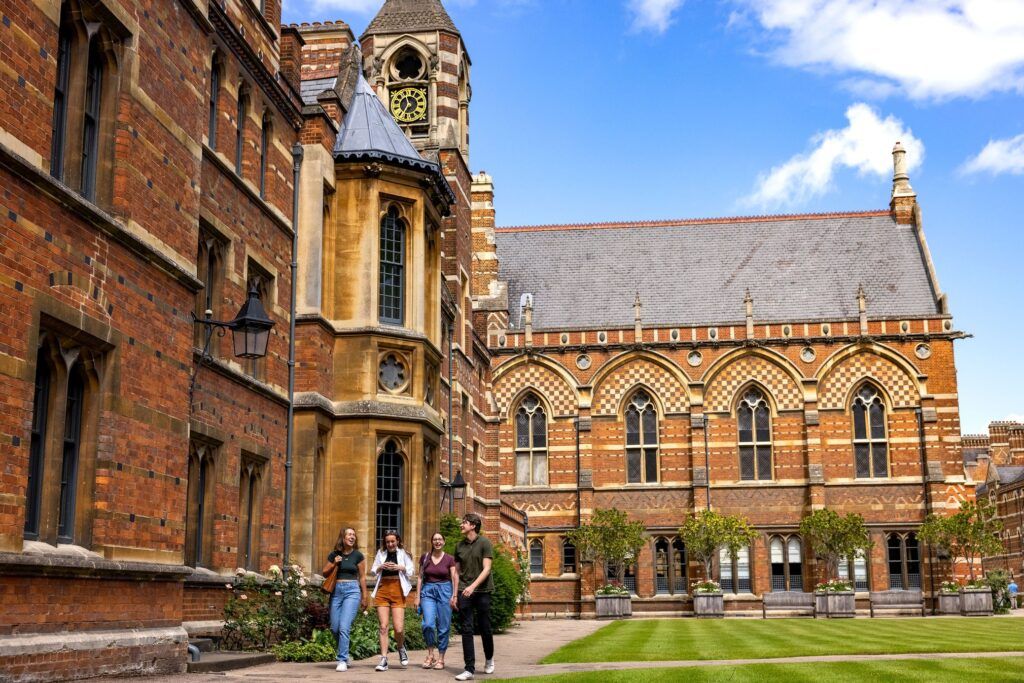
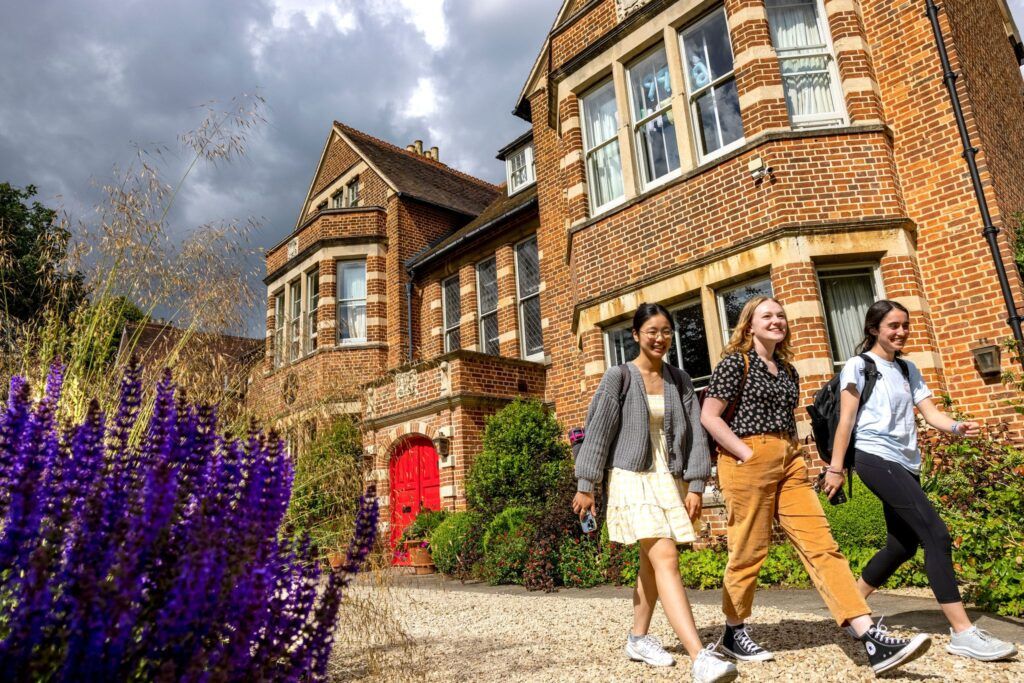
An Oxford Primer
Teaching in Oxford dates back as early as the 11th century, making it the oldest English-speaking university in the world. Some of its graduates and faculty (Sir Walter Raleigh, Thomas More, William Penn, and Adam Smith) left their mark on Western civilization. Some of the greatest English-language writers (John Donne, Jonathan Swift, Lewis Carroll, and J.R.R. Tolkien, to name a few) have studied and found inspiration here. And the university claims 55 Nobel Prize winners.
The University of Oxford has 39 colleges. Unlike the typical American university, these colleges don’t necessarily center around disciplines or subject matter (think Terry College of Business or the College of Pharmacy). Instead, they’re some combination of dormitory, Greek organization, and Hogwart’s house. Each college has a campus with a quad, a dining hall, a chapel, classroom space, and a library.
Oxford students apply for colleges based on academic honors, city location, dining hall quality, or social reputation. Magdalene (pronounced ‘Maudlen’) College is known for being “posh.” Merton College has a reputation for serious students; typically ranked as one of the best academically, it’s often called the college “where fun goes to die.” Keble College has a reputation for inclusiveness and friendliness, and it has an outstanding rugby team.
UGA has close ties with Trinity College and Keble College.
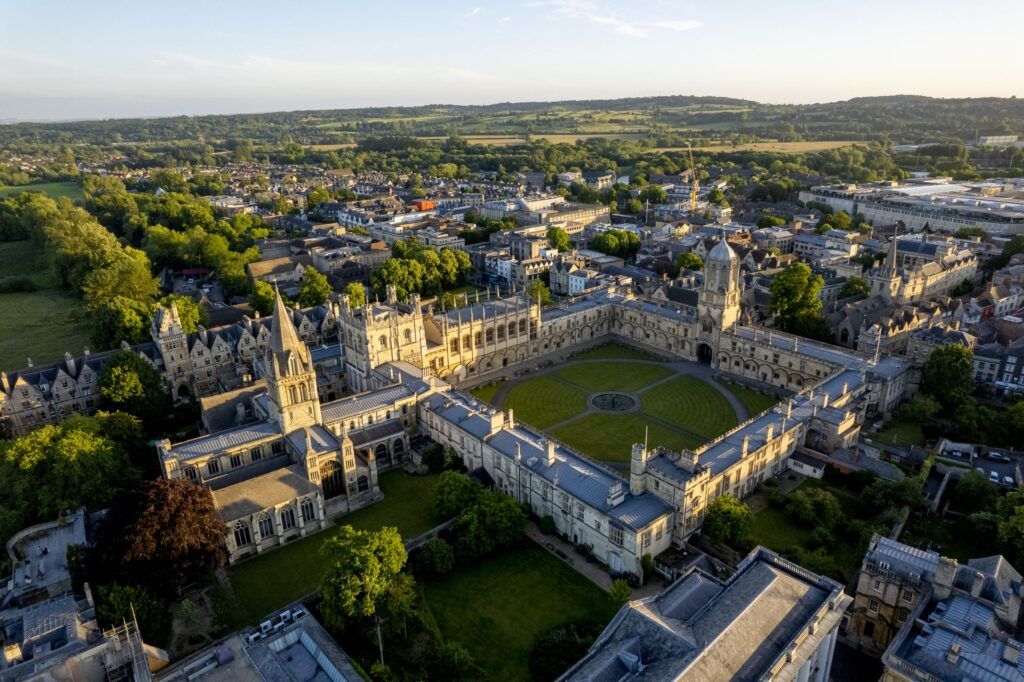
Breadth of program
The UGA at Oxford program is popular with English, history, and religion majors, who can study in a place where so much of their subject matter originated. But the program also welcomes students studying psychology, business, Spanish, biology, computer science, and more.
Semester program students learn in the tutorial format after a few weeks of getting to know Oxford and preparing for what’s coming. Every course, from medieval history and Romantic literature to math and cognitive science, requires students to go beyond surface familiarity with the material. They must put it in their own words, express their own opinions about it, and defend their stances. That’s tough if you’re learning for the first time about, let’s say, complex neurodegenerative brain diseases.
For some students, it’s an opportunity to think about their subject matter in a new light.
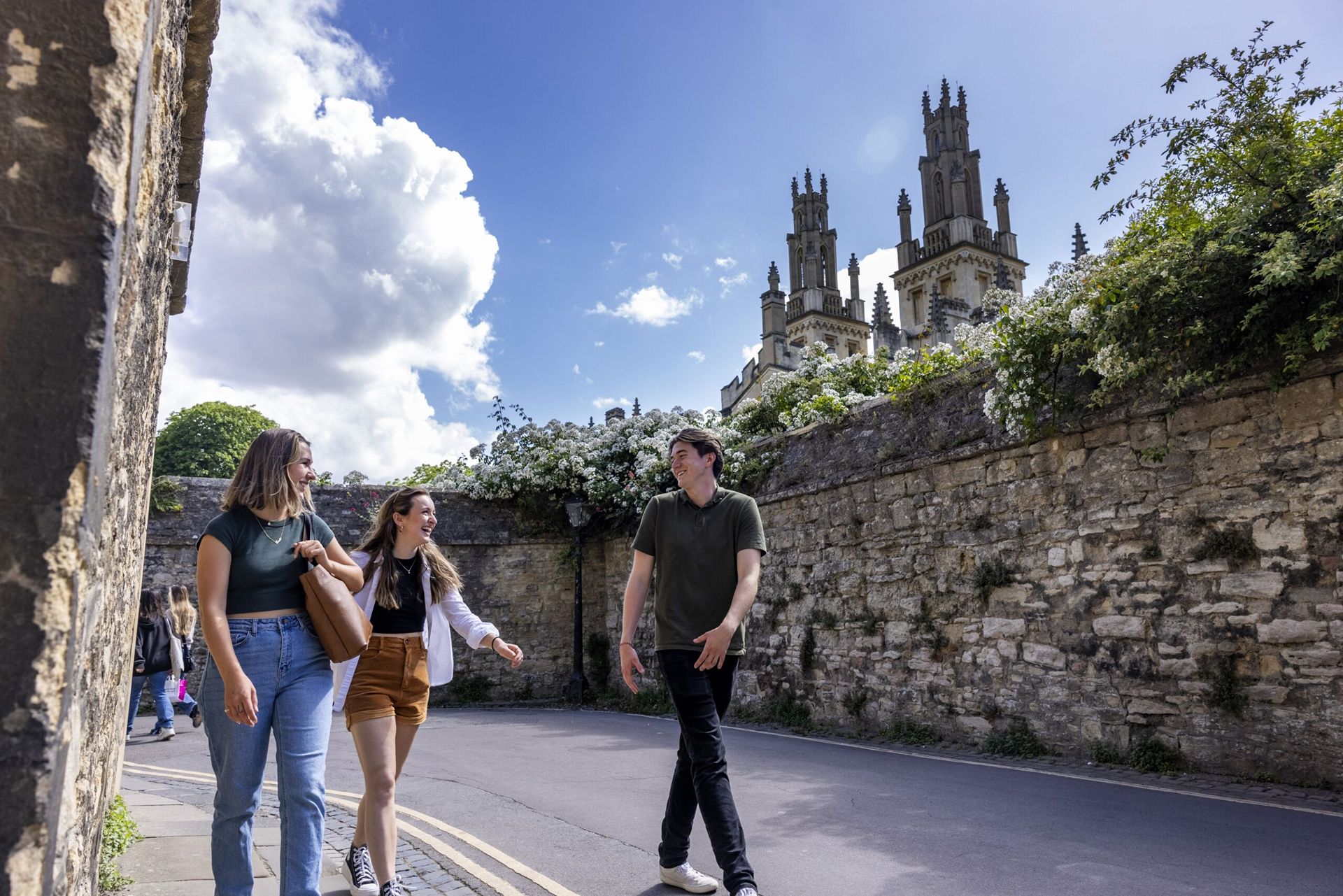
Nicholas Kreitz, a fourth-year data science major, has been acquiring the necessary skills at UGA to be successful in his field. In addition to his coursework, he’s interned with startups and companies through UGA’s Innovation District. He’s thinking about starting his own company someday.
In Oxford, Kreitz got a chance to step back and think about the bigger picture of his chosen field when he took a tutorial on computing ethics. The course explored technology’s impacts on society and developers’ responsibilities to avoid the worst of them.
“I would basically have an hour-long philosophical discussion,” Kreitz says. “And it was very difficult at first because, in data science, I’m very math based.”
Tutorials challenged him to exercise a different part of his brain, which complemented his UGA coursework. “I think studying abroad impacted my relationship with my studies, how I approach classes in general, like taking a lot more ownership.”
That mindset makes him more confident in becoming an entrepreneur.
“I think what’s special about the Oxford program is that it truly is a difficult program. And in the term ‘study abroad,’ they really put the emphasis on ‘studying’ abroad. But it’s really rewarding too; I feel this sense of honor to be able to study at the University of Oxford.”
– Nicholas Kreitz, fourth-year data science major
Finding Inspiration
For Eliza White, tutorials, and the whole Oxford experience, were just the kind of learning experience she needed.
Before her study abroad experience, White, a cognitive science and psychology major, was in a rut.
The pandemic hit near the end of her first year of college, while she was finishing some of her early requirements in large seminar classes. As she dealt with online courses and increased social isolation, White found it more and more challenging to connect with the material, her classmates, and even faculty. She knew she needed something to jumpstart her passion for science.
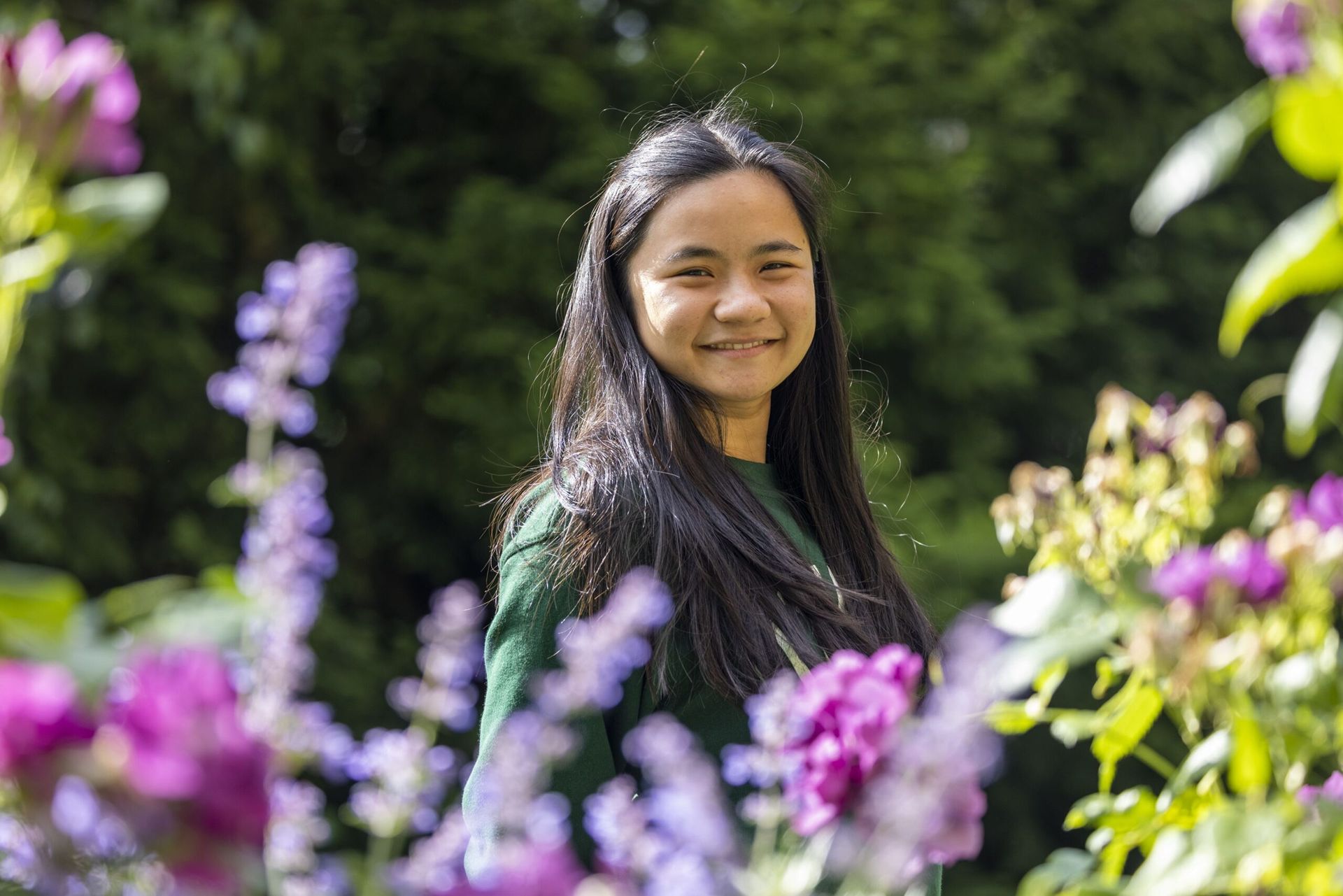
White is bright and charming, but she can be hard on herself and sometimes struggles to communicate what she knows.
“I knew I was a horrible writer,” she says. “And the content you produce (in tutorials) has to be clear.”
At Oxford, White put herself on the spot. She had to produce. She had to work through issues she perceived as weaknesses.
“There’s no place to hide when your tutorial is one-on-one,” she says. “That’s what I wanted. I needed individual attention.”
The experience was never easy. At times, she says, she struggled to keep up with the rigorous demands of her Oxford coursework. But her tutors adjusted just enough for her to catch up.
White dove into other opportunities too.
To meet Oxford students, she signed up for a couple of clubs: one caving club that sent her spelunking in caves around England. White was putting herself in tight spots, daring herself to move forward.
She pushed herself well beyond her comfort zone, and she doesn’t regret a thing.
“It’s probably going to help me for the rest of my life,” she says. “And I think I probably will venture out to other places because this was very eye opening about what the world has to offer and how much I was missing out.”
The UGA at Oxford Centre runs year-round and is open to every major.
- The 12-week semester programs offered in the fall and spring give students the complete Oxford experience. In the first four weeks, students take two seminars with UGA and Oxford faculty and then two eight-week tutorials with Oxford faculty.
- The Oxford and Cortona partnership allows students to get a taste of England and UGA’s campus in Italy.
- UGA’s first-year Foundation Fellows get to enjoy Maymester in Oxford.
- The shortest program is a two-and-a-half week Junemester program, where students take courses and explore England with UGA and Oxford faculty.
- A six-week summer program for students is offered through the Franklin College of Arts and Sciences, the Grady College of Journalism and Mass Communication, and the Terry College of Business.
All programs feature UGA course credit and UGA tuition, meaning Zell Miller, HOPE, and other scholarships still apply to help offset costs.
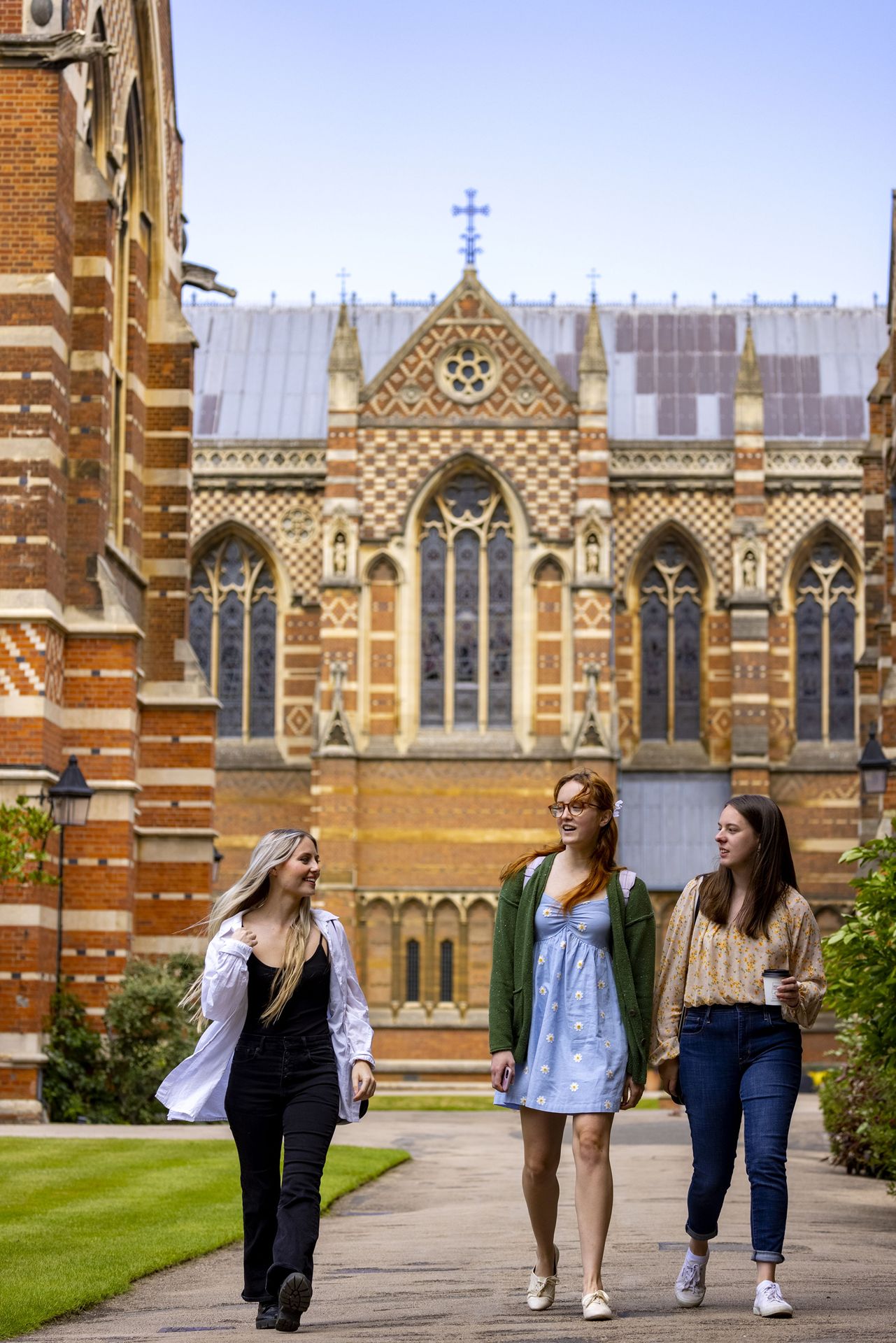
Commit to providing world-class study abroad opportunities for students in England through scholarship support. Learn about support options at oxford.uga.edu/funding.
Written by: Aaron Hale
Photography by: Dorothy Kozlowski, Andrew Tucker
Design by: Andrea Piazza
Videography by: Nick Bragg
